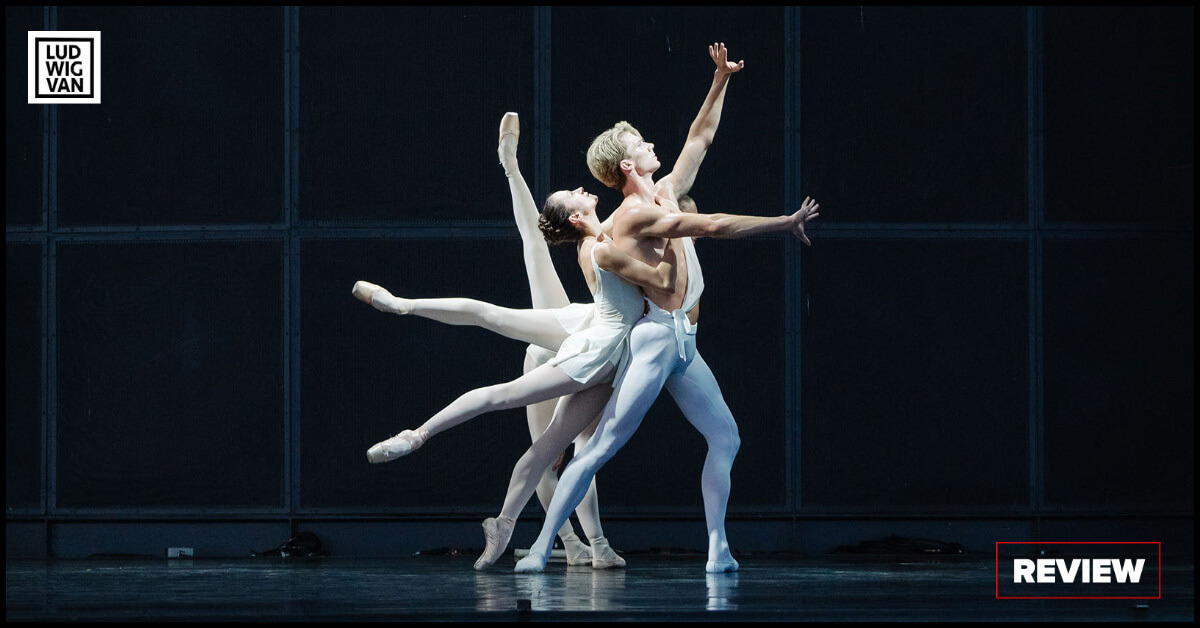“What’s the point of Ballet Black?” So goes one of the many authentic verbatim comments about the company that are read in voiceover at the start of his new play, Say It Loud. And, in a sense, the statement comes close to answering — however silly — its own rhetorical question.
The company was founded in 2001 by British Trinidadian Cassa Pancho (since appointed MBE for her very great efforts) to give black and Asian dancers role models who, at the time, were almost entirely absent from the blindly white world of ballet. Twenty years later, it has not only eight cracking performers, but a representative that includes more than 50 ballets from 37 choreographers.
Say It Loud, by Pancho herself, is the first of two new works that make up this 20th anniversary bill at the Barbican. A more than benign exercise in navel-gazing, it’s something I’m not sure I’ve ever seen before: a potted, semi-impressionistic story of the company that dances it. And although the (mostly neo-classical, sometimes hybrid) stages themselves are far from adventurous – Pancho herself admits that she has, over the years, had to subordinate her own choreographic ambitions to being an administrator. and impresario – it’s an irresistibly optimistic play. work, sometimes funny and sometimes downright fascinating.
Lasting just over 30 minutes, it has seven clearly delineated sections. It starts with those voiceovers (accompanied by pleasantly incredulous looks from all eight performers), establishing a common thread that runs through the entire room. Some, clearly, are downright obnoxious. (“Black people want Bob Marley, not ballet,” says another.) But they quickly become more positive: “I love Ballet Black,” comes as a welcome antidote.
Then, to the fractured ostinato of Steve Reich’s Music for Pieces of Wood, comes an ensemble that bristles with optimistic urgency, energy and purpose – a deft performance (if also, thanks to Reich, slightly tympanic) of the formation of the troop.
This, however, is followed by the only two emotionally pessimistic sections of the work. The first is a gripping, panicked homage to the city in which the company was born and lives, playing – amid unsettling and intrusive spotlight – on grime star Flowdan’s sadly caustic Welcome to London. (Always remarkable, Mthuthuzeli November handles this solo expertly.) And the next passage increases the irony even further.
This, as Pancho explains in a fascinating program essay, tackles “the frustration of navigating a predominantly white world of ballet” head-on. After the murder of George Floyd, she writes, all kinds of previously indifferent parties approached them, wanting them to “fabricate the right kind of story” and, if she and the dancers had experienced racism, “are ready to serve it as entertainment”. His hilariously amusing and furiously sarcastic response is a quintet of dancers who twinkle happily to If You’re Brown by Trinbagonian calypso giant Lord Kitchener while flapping Mardi Gras-style feather boas. Ouch.
Thereafter, however, the fog of cynicism quickly dissipates. Via (among other things) a heartwarming duet to the eternally seductive At Last by Etta James, here perfectly relevant, the piece reaches a climax that feels like a carefully constructed free-for-all. (Special praise here, as elsewhere, for newcomer Rosanna Lindsey.) By this point on Friday, the spirit of optimism radiating from the stage was quite euphoric, and the nearly full Barbican Hall responded in kind.




